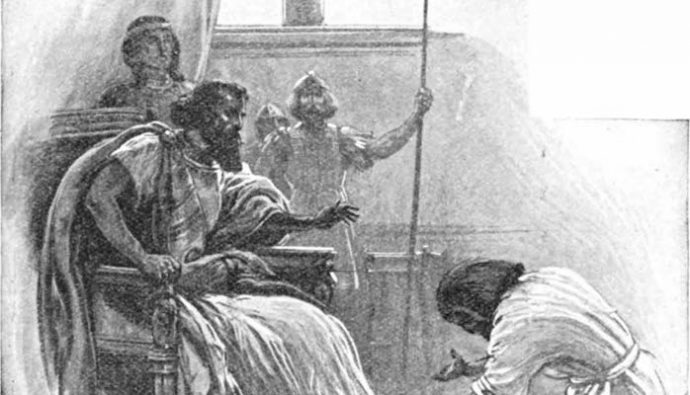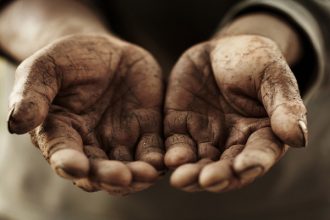Whenever a new king took over an empire in the days of the Old Testament, there were certain threats and dangers that went along with the assumption of the throne. These dangers were heightened when a person outside of the previous monarch’s own family took over. When that happened, the transition was rarely smooth. Immediately people would come out of the woodwork with a claim on the throne and frequently, these people would try to raise their own army to take over the country. Because of those threats, the smart thing for the new king to do would be to take a proactive stance in establishing his authority and power. He would simply dispose of any potential threats. And if he was indeed from a new family, the first people in line for execution would be any remaining family members from the previous dynasty.
David had a long journey to the throne. He had fought off threats both inside and outside of Israel, and his predecessor Saul was less than welcoming to this new person’s claim. Everyone in the land knew about the enmity between Saul and David, so when Saul and his son, Jonathan, were killed in battle, everyone also knew that the rest of Saul’s family were likely to be executed. So 2 Samuel 4 tells us that when the news came about Saul and Jonathan’s death, there was panic in Jonathan’s house. Jonathan had a five year old son named Mephibosheth, and the people of that house knew that his life would likely be in danger. So in fear and haste, Mephibosheth’s nurse picked him up to flee. She picked up him up to quickly however that she dropped him and the fall was so bad that it crippled him in both feet. Then they ran to a new home where hopefully they could be safe.
David meanwhile set about the business of establishing himself. He defeated enemies in and out of Israel. He returned the ark to Jerusalem. He worked to have a stable environment in the land, and life was good for he and his family. The years went on and two very different lives were led.
David and his family settled into power and luxury. His sons were being educated and served. They were growing up with every possible advantage. Meanwhile, Mephibosheth was growing up in a place called Lo-Debar. Lo-Debar meant “pastureless.” Its name inspires thoughts of dead grass and decay; the absence of life. And I’m sure that description also fits what Mephibosheth’s life was like there.
Can you imagine how many days he hobbled on his crutches out to the porch of the house only to sit quietly because the pain in his legs was too much for him to stand for very long? And as he gazed out at the land of Lo-Debar, the pastureless plain, I wonder how many times he reflected on his situation. He looked down at his deformed and lifeless legs and imagined what life might have been like. He would have been groomed to be the prince of Israel. He would have been something, and yet here he was – in this desolate land, not able to walk, doomed to this life of hopelessness. But then the story takes a turn.
Rather than punishing the descendants of Saul, David remembered his intense friendship with Jonathan, and he actively sought out if there was anyone left from that family that he could be kind to. We pick up the story in 2 Samuel 9:5:
Then King David sent and brought him from the house of Machir the son of Ammiel, at Lo-debar. And Mephibosheth the son of Jonathan, son of Saul, came to David and fell on his face and paid homage. And David said, “Mephibosheth!” And he answered, “Behold, I am your servant.” And David said to him, “Do not fear, for I will show you kindness for the sake of your father Jonathan, and I will restore to you all the land of Saul your father, and you shall eat at my table always.”
Mephiboseth was crippled. Cast out. Helpless. Without hope. But David…
We were broken. Hopeless. Dead in our sin. Cast out. But God…
Two kings. Two parties without hope and living under a dramatically uncertain future. And two extravagant displays of grace, both based on the merit of someone else. For Mephibosheth, it was Jonathan. For us, it is God’s own son.
And in both cases, the end is a meal. Mephibosheth sat and ate at David’s table. And it is comforting and exciting to think of that at the end of history, we are all headed for a meal, too. There will be a great banquet with all the saints of history. It will be the supper whereby the marriage of Christ to his church will be celebrated. For now, though, we look to this established relationship. We are secure in His house, never to be cast out again.
Subscribe to MichaelKelley.co
Never miss a new post. Subscribe to receive these posts in your inbox and to receive information about new discipleship resources.






1 Comment